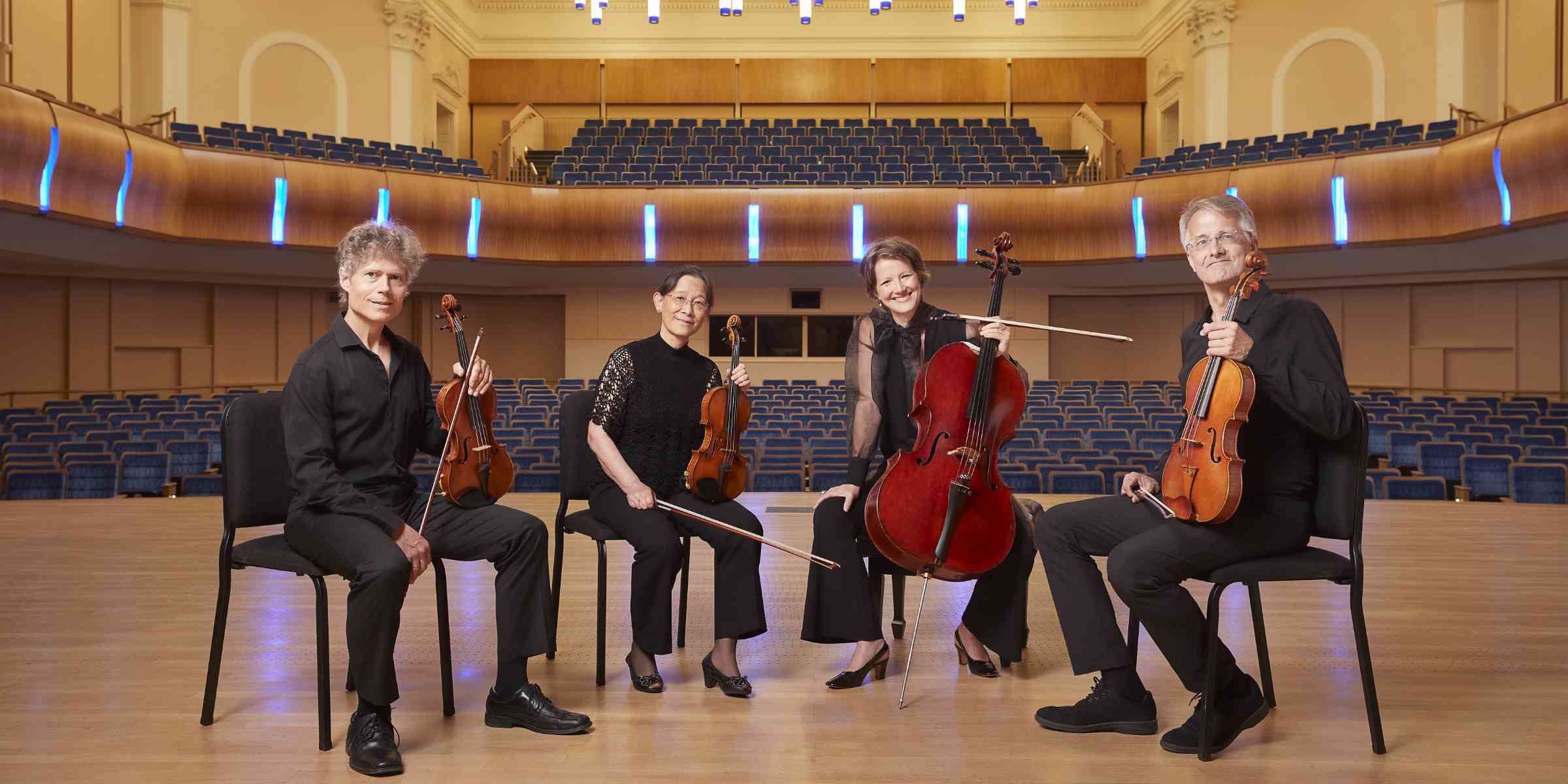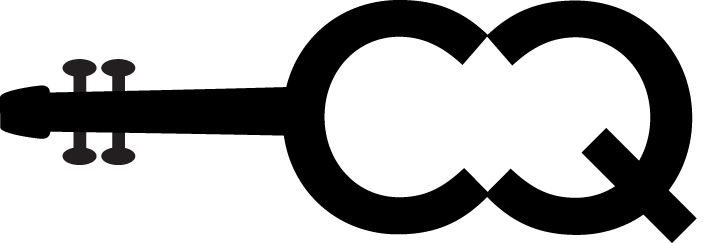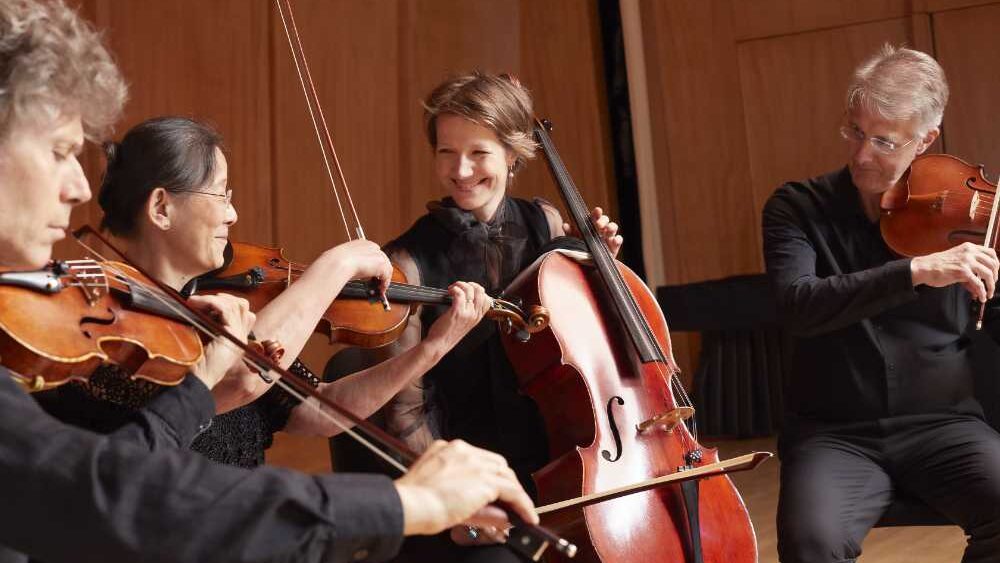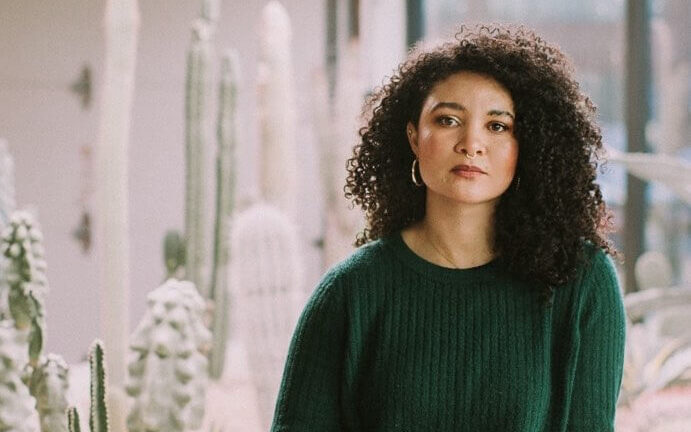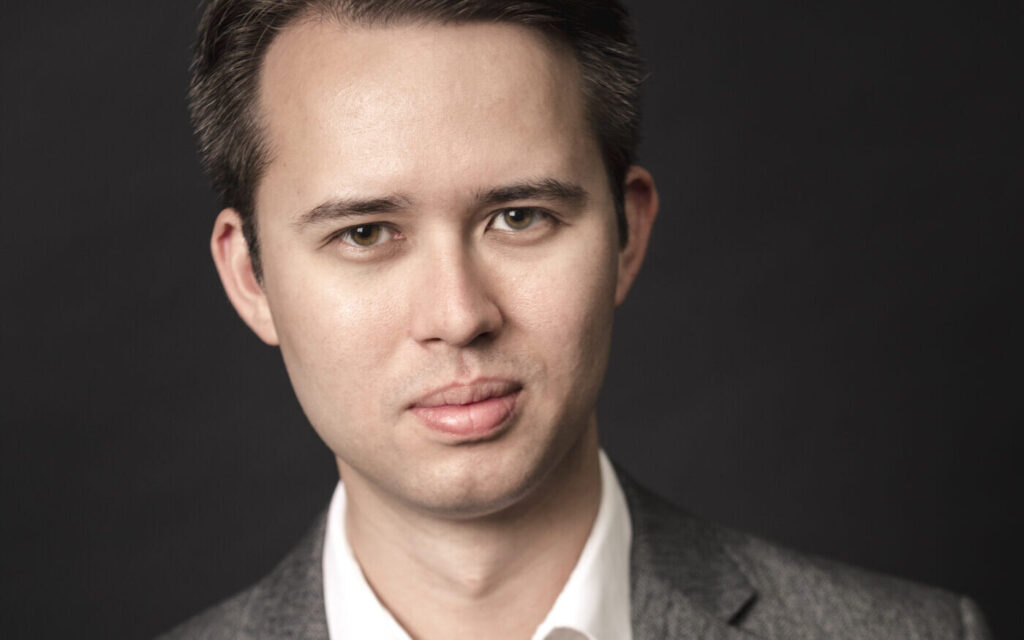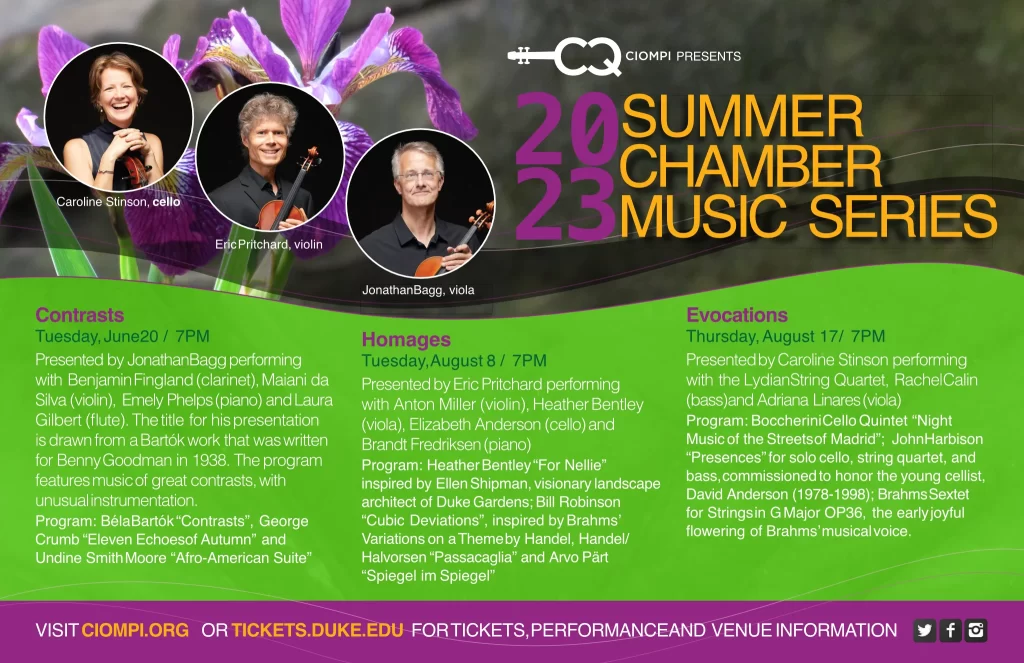

Downtown Classics
Thu March 21, 2024, 5:30 pm – 6:30 pm
NorthStar Church of the Arts, 220 West Geer St, Durham, NC (View on map )
FREE and open to the public
Learn More
Lunchtime Classics
Wed March 22, 2024, 12:00 pm – 1:00 pm
Goodson Chapel, Duke University, 407 Chapel Drive, Durham, NC (View on map )
FREE and open to the public
Learn More
The Ciompi Quartet continues its two performance series of one-hour concerts featuring major works for string quartet in an informal setting. Cellist Caroline Stinson spoke about the Downtown concert initiative:
“The Downtown Concerts grew out of our desire to be in the community – where people work and live. Downtown Durham is so lively and fun and we love being a part of that vibe, right at the end of the work day!”
Ciompi is joined by the internationally acclaimed North Carolina native Allan Ware. Ciompi violinist Hsiao-mei Ku shares how excited the quartet is to have Allen with them again:
“We are so thrilled to have our longtime collaborator and friend back to make music together again. In addition to our several concerts tours in Germany, Allan has been a frequent guest artist in our Duke Concert Series. I still remember vividly an audience member coming to me with tears in his eyes after our performance of the Brahms’ Clarinet Quintet in Baldwin Auditorium.”

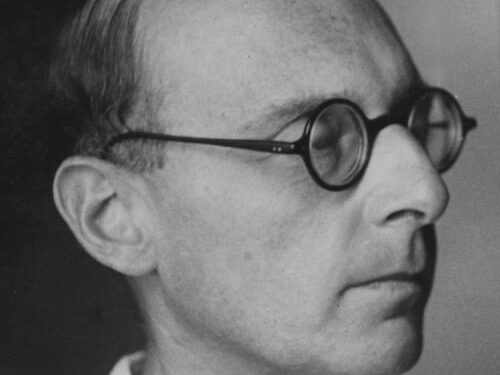
Allan joins the quartet for Paul Ben-Haim’s remarkable work from 1941: The Clarinet Quintet, Op. 31A. Ciompi violinist Eric Pritchard speaks with great passion about the composer’s contribution to chamber music:
“Paul Ben-Haim (1897 Munich – 1984 Tel Aviv) is an utterly unique figure in 20th century music. He radically changed his compositional approach when he emigrated from Germany to Palestine in 1933, eventually becoming the leading exponent of the nationalistic style of Israel. His place in the canon of western music is similar to that of Aaron Copland and this is one of his most popular pieces.”
Student ensemble The Larkspur Quartet from the Chamber Music at Duke will also feature at both concerts performing the 1st movement of Beethoven’s String Quartet No. 15 in A minor, Op. 132. Larkspur was one of the first groups to take part in the Duke / New England Conservatory Exchange program in 2022. That program just completed its latest leg, hosting five NEC students at Duke.
This series provides the opportunity to see truly world class performer alongside young artists in development, performing works from the classic chamber music canon in two beautiful settings.
